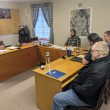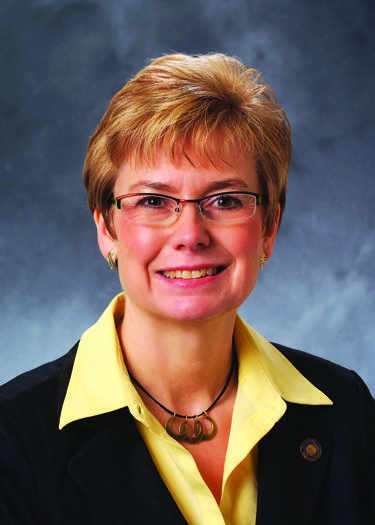I’m frequently asked questions like, “Are you off today?” “So are you on a break now?” “How often are you in Salem?” “You’re not in session, are you?”
My personal favorite is, “You’re not working now, right?”
I suppose these are all fair questions since my schedule varies so much.
In 2008 Oregonians voted to have annual sessions, opposed to one long session in odd-numbered years. The legislature debated annual sessions in the 2007 session, prior to my arrival in 2008. Therefore, there was a bill passed that resulted in a referral to the voters.
The question was, do Oregonians want their legislature meeting every year with defined timelines or every other year without limits on the length of the session? Voters chose annual sessions and that is now part of the Oregon Constitution.
The legislative session always starts around the first of February. In odd-numbered years this session lasts until sometime around the first part of July. During this session we meet every day and have committee meetings and typically a floor session, where we vote on bills.
The first few weeks of the session these floor sessions are fairly short, sometimes lasting less than an hour. Towards the end of the session, we have multiple floor sessions each day, sometimes lasting into the evening. The latest I have been on the floor voting is 10 p.m., which happened in my very first session.
Starting the first part of February, in even numbered years, is the “short” session. Constitutionally, this session can last 35 days.
To be clear, any bill idea can be introduced in this session. There are no legal restrictions to what type of policy can be debated. However, there is no shortage of complaints or objections to bill concepts being introduced. This session was initially discussed as a short session to take care of budget adjustments and “emergency” legislation.
During that first short session in 2008 the small town of Veneta was the topic of many committee meetings. In December of 2007 much of Oregon experienced severe flooding and Veneta was particularly devastated. Much of the town’s infrastructure and services were wiped out. The school closed for a while and the post office suffered damage and postal service was interrupted for an extended period.
As a result, many residents didn’t receive auto insurance renewals and were cancelled. The 2008 legislative session took up this issue and passed a series of laws to mitigate the impact to residents who, through no fault of their own, missed payments and deadlines. This is the type of work many legislators envisioned the short session to be about.
In recent years, I’ve seen significant policy discussions take place in the short session. For instance, when we convene Feb. 5, the topic of a cap and trade tax will be forefront on the agenda. Regardless of how one feels about the topic, in my opinion, that is too major of a policy discussion to take place during a 35-day session.
One of the two bills I am introducing this session will seek to extend a law that expired Dec. 31 of last year. Briefly, a few cemeteries are caught in a situation where families who currently own plots can’t legally bury a loved one if the cemetery is “closed.” Nobody intended for this glitch in the law to occur, but it can be devastating to some families. This type of legislation is what I think the short session is better suited to address.
Session is only one part of a state representative’s job description, but arguably is one of the most important.
It’s not uncommon for me to spend most of my waking hours at the Capitol or in the car commuting during session. Making laws is serious business and has significant implications in our day to day lives. I often become frustrated with a process that is challenging and seems to move at a snail’s pace. It is in these times that I remind myself making a law shouldn’t be easy or quick.
Besides, many of us think there are enough laws already.
– Sherrie Sprenger represents most of Linn County, including Lebanon, as part of her 17th District of the Oregon House of Representatives, where she has served since 2008. Prior to her service in the legislature, she was chair of the Lebanon School Board.





